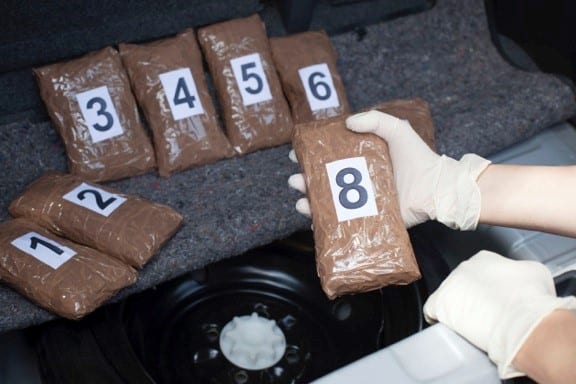
A number of different Minnesota laws changed recently, including the sentencing and penalties for drug possession and trafficking crimes.
August 1st marked the beginning of over 50 new important laws and changes in Minnesota, including laws concerning DUI sentencing, minimum wage, and digital assets. But, possibly most notably, Minnesota made the biggest revisions to drug crime and sentencing legislature in almost three decades.
Over 20 amendments or changes were made to the thresholds for certain degrees of crimes, as well as overall drug sentencing. The goal of the legislation is to reduce jail time and sentencing for low-level offenders while increasing sentencing for big drug dealers.
The Basics of Minnesota’s New Drug Sentencing Structure
Drug crimes in Minnesota are classified by the type of drug. Controlled dangerous substances (CDS) are grouped into 5 “schedules,” with Schedule I being the most severe (i.e heroin) and Schedule V being the least dangerous (i.e. cough syrups containing codeine). Marijuana is considered its own category, with separate charges and penalties.
Possession and sale of different types of drugs are sentenced separately, which is nothing new – sale has always been a more severe crime than possession. But with the new reforms, the gap between the sentencing differences for possession and sale has widened.
From Felony to Misdemeanor
One of the biggest changes starting this month is the sentence reduction for first-time offenders caught with possession of a small amount of a controlled substance.
First- and second-degree possession charges will both be affected. These charges were previously felony charges. Usually in cases involving drug addicts, even a first-time offense sent individuals to jail and put a felony conviction on their permanent record. In an aim to encourage rehabilitation before punishment, possession of a controlled substance will now be charged as a gross misdemeanor.
The sentence for a gross misdemeanor in Minnesota is up to one year in jail or fines of up to $3,000. Minnesota lawmakers hope that rather than choosing jail time, judges will be more likely to suggest rehabilitation programs to get addicts back on the right track. Lawmakers also predict that enacting these changes will free up over 700 spaces in state prisons and save over $12 million each year.

Harsher Sentences for Big Drug Traffickers
As mentioned above, not everyone is getting a break with these changes. While low-level offenders are seeing reduced sentences, drug traffickers and dealers will face not only harsher sentences, but also lower thresholds.
Additionally, when you are charged with a crime in Minnesota, your sentence can be drastically increased by aggravating factors such as prior convictions, hate crimes, or resulting bodily harm. With the new laws, there is now an aggravated 1st degree controlled substance crime, also called the “kingpin crime.”
If you are caught selling drugs and the prosecution proves that there are aggravating factors present, you will be sentenced to jail for a minimum of 86 months (for the typical 1st degree controlled substance crime, you will be sentenced to a minimum of 65 months in prison). Some of the aggravating factors include:
- Possessing a gun at the time of your arrest
- Acting on behalf of a gang
- Holding kingpin status
86 months is a sentence of over seven years in prison. For a 1st degree controlled substance crime, aggravated or not, you could face up to 30 years in prison and fines of up to $1,000,000. A second offense could be penalized by up to 40 years in prison.
The laws regarding an aggravated 1st degree controlled substance will affect dealers of any type of drug. While the country is taking a long, hard look at the results of the legalization of marijuana in various states, Minnesota is hoping to crack down on big marijuana dealers. The amount of marijuana needed to reach certain thresholds for sale charges has decreased, making it easier for prosecutors to send dealers to jail for a longer period of time.

If You Have Been Charged With Drug Crimes
If you were charged with a drug crime that was committed prior to August 1, these new laws will not affect your case or your sentencing.
Although these big changes do not happen often, it is important to constantly stay aware of changes, amendments, and additions to laws regarding drug crimes and sentencing. Your first or second charge or conviction will have an impact on subsequent or repeat charges.
If you have been charged with a drug crime, consider getting on the phone with a Minnesota drug crimes lawyer today. An experienced criminal attorney can help you protect your rights and give you the best chance at a positive outcome.
About the Author:
Christopher Keyser is a Minneapolis-based criminal and DWI defense attorney known for fighting aggressively for his clients and utilizing innovative tactics to get the most positive results. He has been featured in numerous media outlets due to the breadth and depth of his knowledge, and recognized as a Minnesota Super Lawyers Rising Star (2014–2016), a Top 100 Trial Lawyer (2013–2016), and a Top 40 Under 40 Attorney (2013–2016).





